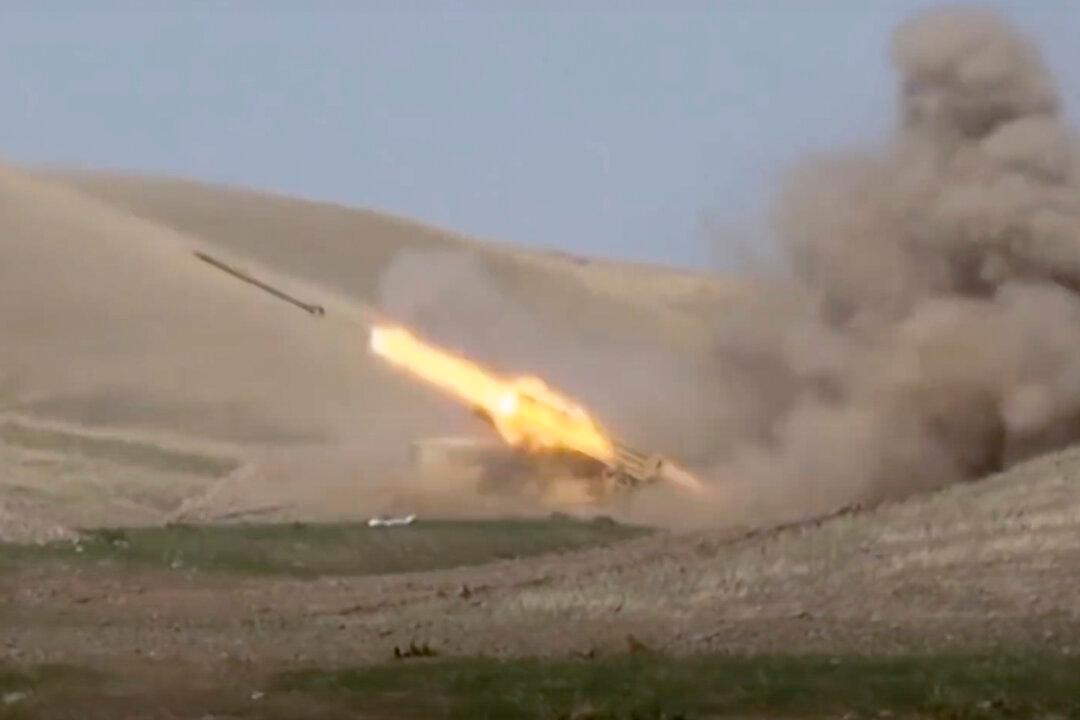YEREVAN, Armenia—Armenia and Azerbaijani forces kept fighting Monday over the disputed separatist region of Nagorno-Karabakh after hostilities broke out the day before, with both sides blaming each other for resuming the deadly attacks that reportedly also wounded scores of people.
The Azerbaijani Defense Ministry claimed that Armenian forces started shelling the town of Tartar on Monday morning, while Armenian officials said the fighting continued throughout the night and Baku resumed “offensive actions” in the morning.





